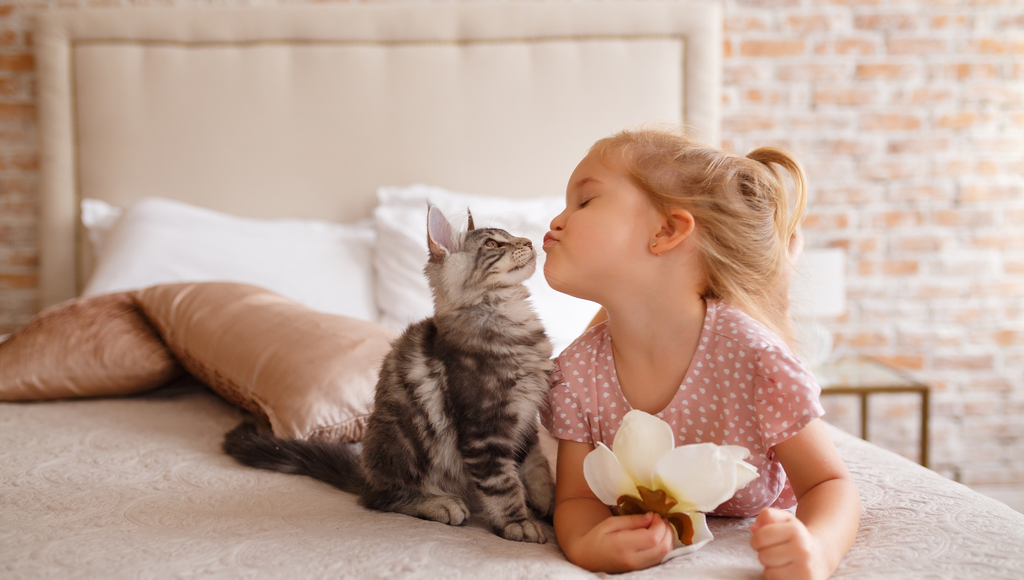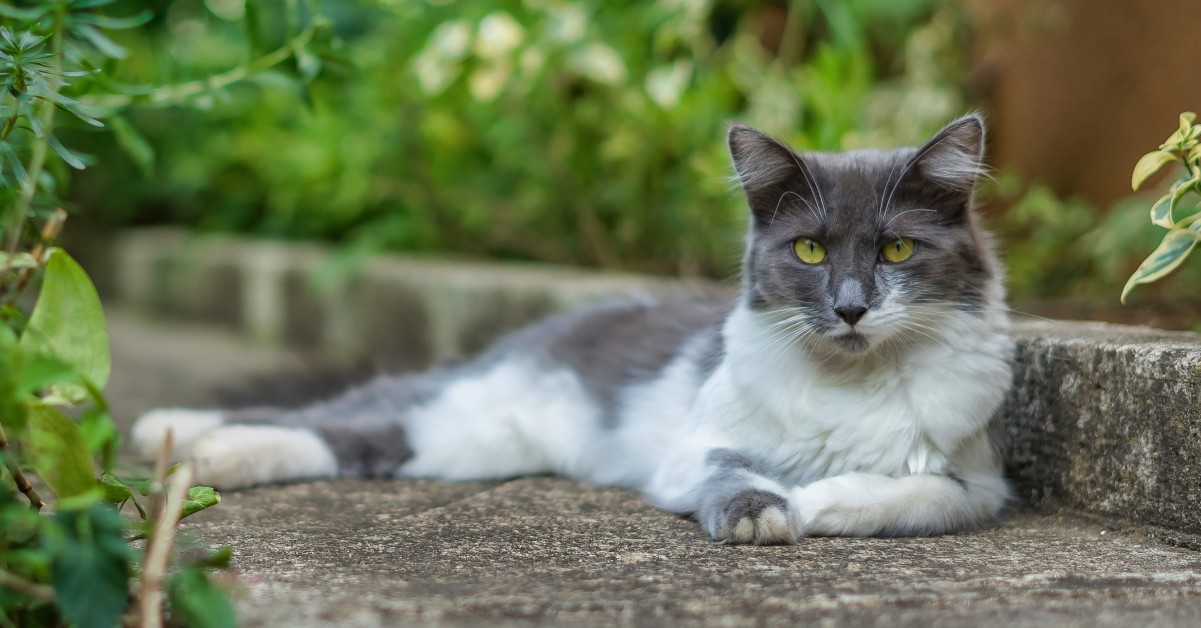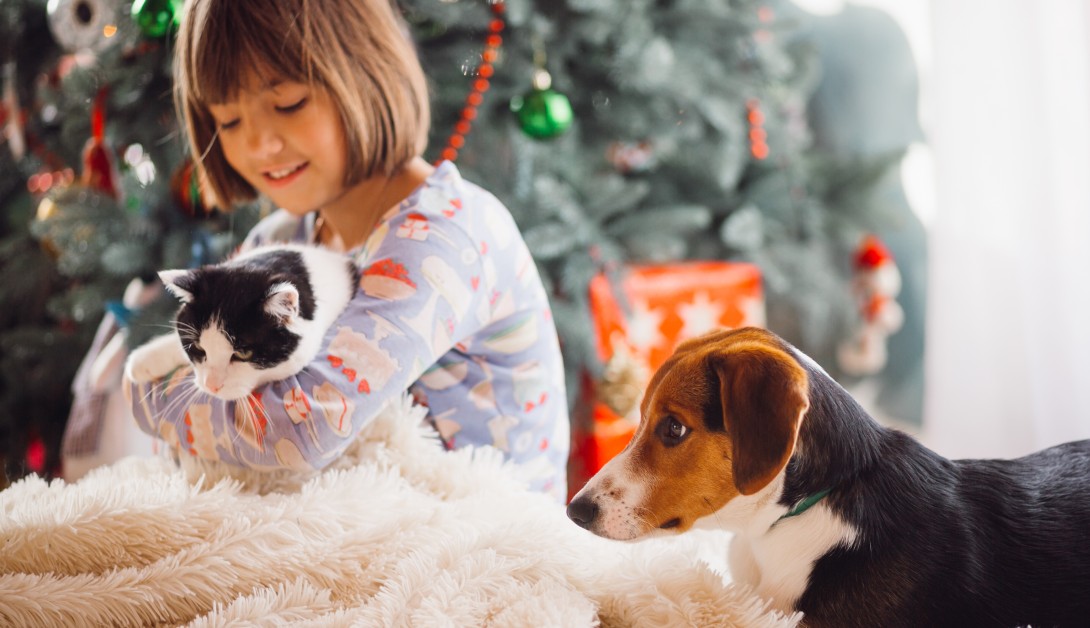Cats Actually Do Love You!
Studies show that despite their aloof reputation, cats can form tight bonds with humans.

Cats have a reputation for being aloof and unresponsive when it comes to forming a human attachment. Unlike dogs, cats appear to have strong independence completely immune to human interaction. While some owners prefer the independence that cats possess, other owners are left asking if their cat even appreciates their presence, or if they are merely a means to food and water. Luckily, new research is emerging that proves that not only do cats love their owners, but they form a strong bond and attachment to them, which begins in kittens and lasts through adulthood. It turns out that hidden beneath their tough exterior, cats are just as attached to humans as dogs and even babies.
Understanding Attachment
Forming a bond or attachment is a behavior phenomenon that can be connected to evolutionary survival. A baby will quickly form an attachment with the mother as a source of protection, food, and warmth. Many experiments have been performed over time to test how attachments are formed and to measure the bond between species. Take for example the very controversial "wire mother" experiment performed in 1958 to examine the emotional bond between a baby monkey and mother. While a mother is certainly necessary to provide food and warmth, the experiment proved that a deeper emotional and psychological attachment was necessary for future growth and development.
It turns out that there are two different types of attachment, secure and insecure attachments. A secure attachment results in a strong bond with the animal exhibiting normal behavior, while an insecure bond can exhibit signs of restlessness, irritation, or nervousness. Measurements for attachment have progressed from measuring the attachment between the same species, such as monkeys in the "wire mother" experiment, to measuring the attachment formed between domesticated animals and their owners. There have been several experiments examining the bond between humans and dogs, simply reinforcing that dogs are very bonded animals. But what about the aloof felines in our life?
Tests for Attachment
Based on a common experiment that has been performed between babies and their mothers, researchers decided to measure the number of cats that formed a secure attachment with their owners. In the experiment cats and owners were kept in a room together for two minutes. After time was up, the cat was removed to another space, without the owner, for an additional two minutes. Once the cat was returned, the cat's behavior was examined. Cats that returned to carefree exploration and play were said to have a secure attachment, while cats that returned anxious with visible signs of annoyance, such as twitching their tail or licking their lips, were said to have an insecure attachment.
In the experiment adult cats were tested just once, while kittens were tested twice, one month apart, to measure if the bond and human attachment grew over time. The results of the experiment were quite surprising. It turns out that about 65% of cats formed a secure attachment with their human, while the remaining cats were either insecurely attached or unclassifiable. Shockingly, not only are these numbers slightly higher when compared to dog secure attachment rates, but are similar to the attachment rates between human babies and parents. Further, the findings found little difference in the rate a kitten securely attached to its owner over time, demonstrating that kittens may form a meaningful bond with their human early in life.
A New Hope for Adoption
While these studies may show that cats have a stronger bond with humans, and a wider range of emotion than once thought, these findings can have very encouraging impacts on shelter adoptions. The fact that cats are more than just an aloof, independent hunting machine may push shelters and animal rescues toward fostering cats. The fact that a shelter cat can form a strong and close human attachment presents the perfect case to encourage fostering. Securely attached cats prove to be calmer and more confident, allowing them to relax and fully explore their environment. Having a confident and carefree cat who is loving and affection can be present glowing attributes when it comes to adoption.
Signs of Bonding
Just because your cat doesn't regularly come running to greet you when you come home after work does not mean that he or she doesn't love you. After these encouraging results measuring the strong bond between owner and cat, perhaps it is time to start looking for signs of bonding in your cat in unconventional places. Cats are a completely different species from dogs, so it is unfair to expect a cat to mirror the same loving behaviors a dog exhibits. Typically cats display a bond and love for their human by:
- The Cat Kiss: Cats will display a slow, thoughtful blink while making eye contact with their owners. Not only is this a sign that your cat loves you, but it is a sign of trust between owner and cat.
- Kneading: Often, cats will knead on their owners' laps or bedding, moving their paws in a rhythmic motion giving you a small massage. It turns out this behavior is similar to kittens who massage their mothers' sides to encourage more milk production.
- Rubbing: Cats who love you want to be close to you, but they are also marking you. It turns out with each rub or head bump your cat is leaving feline pheromones to claim you as his or her own.
- Grooming: If your cat tries to lick or gently bite you, he or she could be trying to groom you. This is a perfectly normal and common behavior that is often observed in large feline societal groups. Consider yourself lucky for receiving a feline bath.
Cats were once thought of as a distant and uncaring pet, simply roaming the home independently devoid of human interaction and contact. Recent studies measuring human attachment though are proving there may be an alternative narrative when it comes to feline affection. Ranking higher than the bond between humans and dogs, and ranking equally as strong as the bond between babies and human mothers, it turns out that cats are quite securely attached to their humans, and really do love you.
Ready to start saving money on pet wellness care?
Then take a look at Mint Wellness, the pet wellness plan that provides fast reimbursement on routine pet care. Save on vaccinations, wellness exams, preventatives, dental, and more!
Learn More


